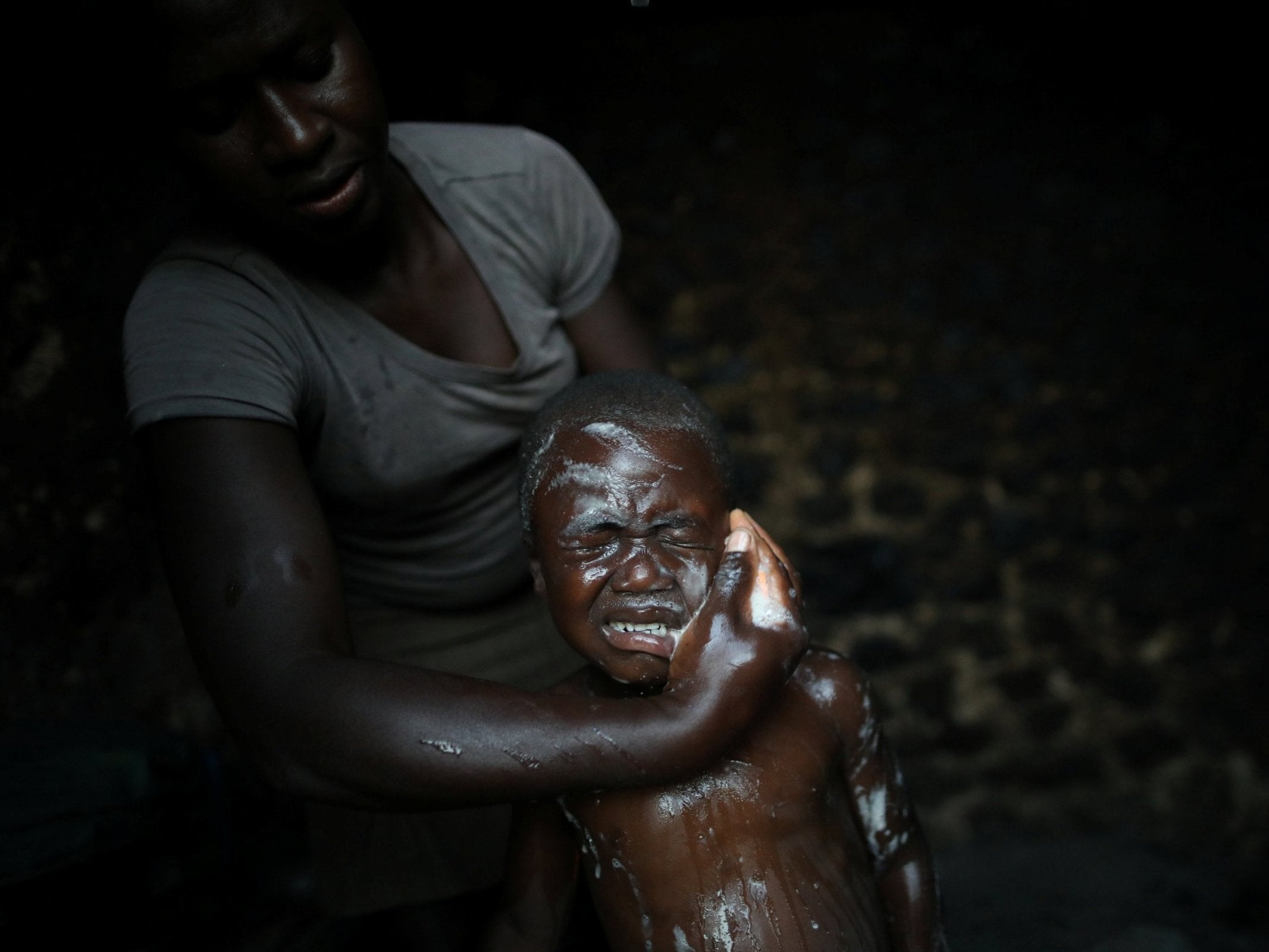Inside Haiti’s forgotten village, isolated for more than a decade
Boucan Ferdinand lost its only road to the nearest Haitian town in 2004 – many are leaving for the Dominican Republic, while others cling on to a precarious way of life. Andres Martinez Casares captures their struggle

Your support helps us to tell the story
From reproductive rights to climate change to Big Tech, The Independent is on the ground when the story is developing. Whether it's investigating the financials of Elon Musk's pro-Trump PAC or producing our latest documentary, 'The A Word', which shines a light on the American women fighting for reproductive rights, we know how important it is to parse out the facts from the messaging.
At such a critical moment in US history, we need reporters on the ground. Your donation allows us to keep sending journalists to speak to both sides of the story.
The Independent is trusted by Americans across the entire political spectrum. And unlike many other quality news outlets, we choose not to lock Americans out of our reporting and analysis with paywalls. We believe quality journalism should be available to everyone, paid for by those who can afford it.
Your support makes all the difference.Near the bottom of the island of Hispaniola in southeast Haiti is a forgotten village, cut off from its own country, and slowly emptying as its residents leave for the neighbouring Dominican Republic. Without health services, electricity, or paved roads, Boucan Ferdinand lost its only road to the nearest Haitian town, Bois Negresse, in devastating floods back in 2004.
Some of its residents have left for the Haitian capital of Port-au-Prince and others cling on to a precarious life. Many have crossed illegally into the more prosperous Dominican Republic.
“They do not have access to basic social services, this situation is at the root of the mass migration to the Dominican Republic,” says Jean Gilles Viola, mayor of the municipality that governs Boucan Ferdinand and around 20 other villages.
Those who remain live in thatch and stick hovels, collecting rainwater to drink and at constant risk of infectious diseases. Some children, in impeccable blue uniforms, walk to a school in the town of Chapotin – a trip that takes an hour and a half over a narrow path, impassable in the rainy season.
In the village are two makeshift classrooms, run by the Baptist and Catholic chapels.
“This year my children will not go to school,” says village farmer Wilber Jean, as his children play nearby. “Here you pay a ton. There,” pointing across the border, “the president pays.”
Children collect firewood or graze small flocks of goats and sheep to help their parents. During planting time, many skip school in order to help on the farms, earning less than $2 a day.
In the mornings, the village smells of burning firewood brought by the children as the women make breakfast: sometimes there is pasta, but more likely coffee and a piece of bread. Often there is rice and beans. Meat, a luxury. Haiti, which according to the World Bank is the poorest country in the Americas, has not recovered from a powerful earthquake that hit it in 2010, leaving more than 200,000 dead.
The countryside has been emptying out. Less than half of Haitians live in rural communities compared to 84 percent in 1960, World Bank data shows. Boucan Ferdinand seems to have fallen off the map. Radios mainly capture Dominican signals.
“I’m tired of looking for stations in Haiti,” complains Polo, a 64-year-old man who returned here with his wife and one of his grandchildren after spending more than 40 years in the Dominican Republic.
Aurana Augustin “Timatant” sold bread and sweets until a few months ago when the left half of her body was paralyzed. Today, the grandmother spends her days lying in bed.
The nearest Haitian health centre is across a mountain, so she has been crossing the border on a mule to seek care in the Dominican town of Duverge. The local government wants to rebuild the road taken out by the floods but lacks the financial means, the mayor says.
Reuters
Subscribe to Independent Premium to bookmark this article
Want to bookmark your favourite articles and stories to read or reference later? Start your Independent Premium subscription today.
Join our commenting forum
Join thought-provoking conversations, follow other Independent readers and see their replies
Comments